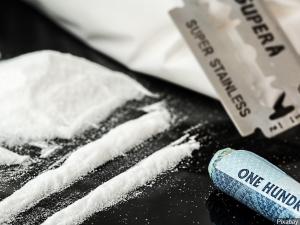A pair of Missouri lawmakers are pushing a psilocybin therapy bill for next session, a clash between a drug gang and villagers in Mexico leaves 14 dead, and more.

Pennsylvania Push for Decriminalization Bill Seeks Cosponsors. State Sens. Sharif Street (D) and Camera Bartolotta (R) are planning to reintroduce a marijuana decriminalization bill from the last session for next session and are looking to garner support ahead of time. They began circulating a cosponsorship memo last week.
Last session's Senate Bill 107 would remove the possibility of jail time for the use or possession of pot and replace it with a $25 fine for possession and a $100 fine for public use. Under current state law, possession of small amounts is a third-degree misdemeanor punishable by up to 30 days in jail and a $500 -- and you lose your drivers' license for six months.
"Each year in Pennsylvania, thousands of people are charged with minor possessory offenses," the senators wrote in the memo. "These charges permanently stain records and hinder an individual's ability to obtain work, housing, and childcare. This legislation would ensure that the lives ordinary Pennsylvanians are not burdened by these insignificant charges. Medical marijuana has provided many patients with relief from their respective ailments and has aided them in their ability to cope effectively," the memo says. "Yet, we still criminalize recreational cannabis and incarcerate those who possess small amounts of it. This seems injudicious and, frankly, inappropriate."
Psychedelics
Missouri Lawmakers Pre-File Bills to Legalize Psilocybin Therapy, Fund Clinical Trials. Sen. Holly Thompson Rehder (R) and Rep. Aaron McMullen (R) have pre-filed a pair of bills that would legalize the medical use of psilocybin and mandate clinical trails to explore psilocybin's therapeutic potential. The bills will be considered in the 2024 legislative session.
The two bills both call for adults 21 or older who are diagnosed with a qualifying condition such as post-traumatic stress disorder (PTSD) or substance misuse disorder to be able to legally access laboratory-tested psilocybin -- if they are enrolled or sought enrollment in a Department of Health and Senior Services (DHSS) clinical trial involving the psychedelic.
The bills lay out numerous requirements, including patients providing the department with information on their diagnosis, the person administering the psilocybin, and details of the place and time of treatment sessions. The amount of psilocybin used per treatment episode would be capped at 150 milligrams, and psilocybin could only be used during a one-year period, although patients could be approved for subsequent one-year periods.
Similar legislation could not pass out of the House last year.
International
Colombian President Reinstates Drug Decriminalization. With the issuance of an executive order last Thursday, leftist President Gustavo Petro reinstated drug decriminalization in the country. The decree applies to up to 30 grams of marijuana and five grams of cocaine. In doing so, Petro nullified an earlier decree from his predecessor, rightist Ivan Duque, that allowed police to pursue people for both consumption and possession of small quantities of drugs.
Back in 1994, the Colombian Constitutional Court decriminalized the use and possession of "minimum doses" of drugs, arguing that drug use was included in the "free development of personality," which is included in the country's constitution. But conservatives have never accepted that ruling and sought in 2009 and 2011 to reintroduce the criminalization of small-time possession. The Constitutional Court in 2012 reaffirmed the decriminalization of minimum doses, but that didn't stop Duque from attempting to role it back through an executive order.
Now, both Duque and his political godfather, former rightist President Alvaro Uribe, are criticizing the move and worrying aloud about the "societal impact, particularly on youth and families," but Petro is undeterred.
The current president said that rules against the drug trade and drug trafficking remain intact, and that by removing fines and police crackdowns, confrontations with police and abusive practices, especially toward women, would cease. He added that the move marks a shift away from the "senseless persecution" of young people.
Mexico Clash Between Drug Gang, Villagers Leaves 14 Dead. Gunmen from a notoriously violent drug cartel, the Familia Michoacana, ran into a buzzsaw of resistance last week when they attempted to extort money from villagers in Texcaltitlan in the state of Mexico, about 80 miles southeast of Mexico City.
Fourteen people were killed, including 10 gang members and four villagers. Videos posted last Friday showed villagers wearing cowboy hats and armed with sickles and hunting rifles chasing down suspected gang members as bursts of automatic gunfire sounded.
Among the dead was the leader of the Familia Michoacana, Rigoberto de Sancha Santillan, also known as "El Payaso" or "The Clown."
The gang has been dominant in the area for many years, and in addition to drug trafficking activities, it engages in extortion from any licit or illicit business it can. It has been known to burn ranches, farms, and businesses that failed to pay protection money.
Mexico State Gov. Delfina Gómez assured locals that maintaining order was among her top priorities. "These events do not paralyze us, on the contrary, they reaffirm our determination to improve security conditions in our beloved state, rest assured that we will continue working so that events like this are not repeated," she said in a press conference on Saturday. "You are not alone, we are with you."
This work by StoptheDrugWar.org is licensed under Creative Commons Attribution-ShareAlike 4.0 International
Add new comment